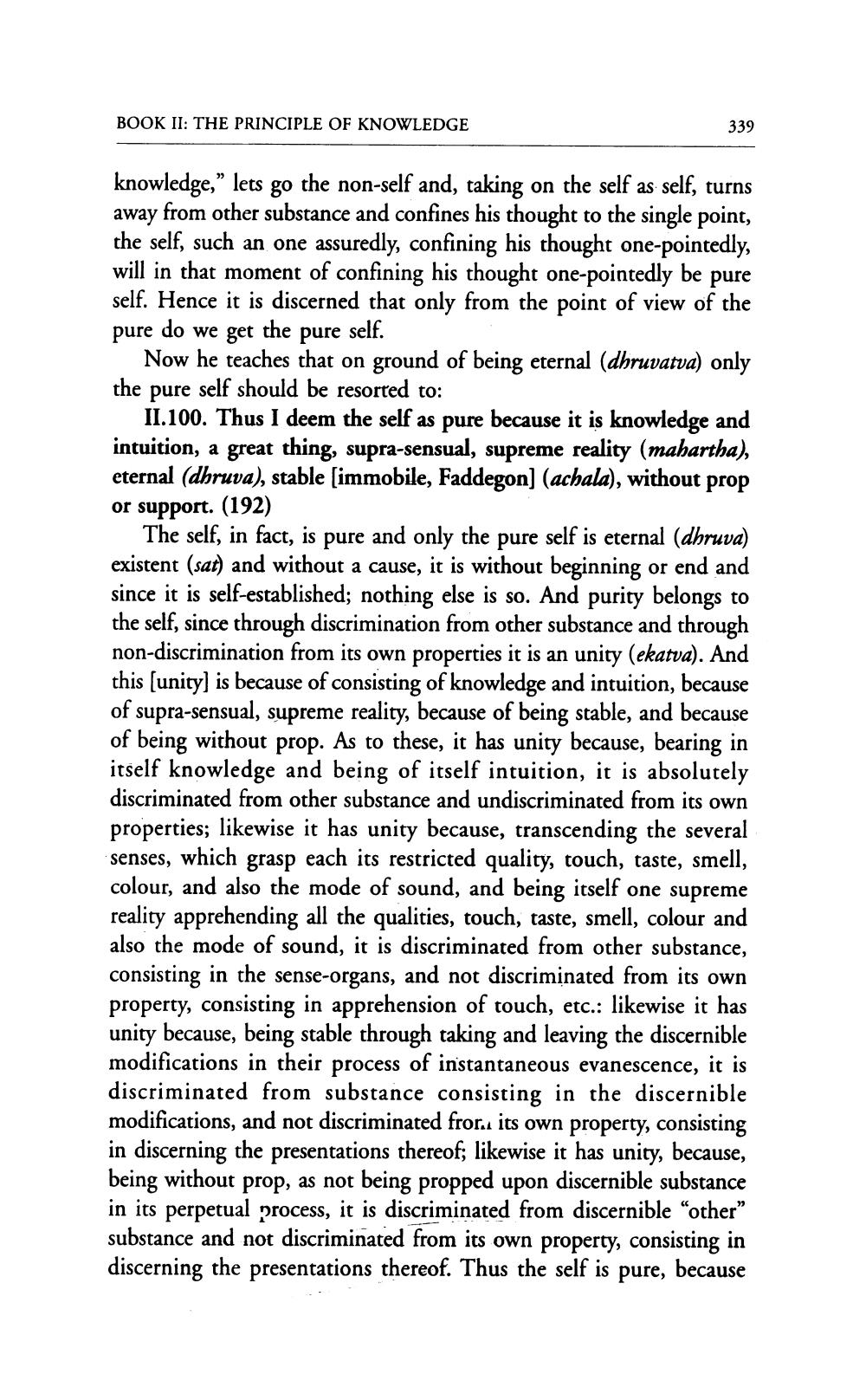________________
BOOK II: THE PRINCIPLE OF KNOWLEDGE
339
knowledge," lets go the non-self and, taking on the self as self, turns away from other substance and confines his thought to the single point, the self, such an one assuredly, confining his thought one-pointedly, will in that moment of confining his thought one-pointedly be pure self. Hence it is discerned that only from the point of view of the pure do we get the pure self.
Now he teaches that on ground of being eternal (dhruvatva) only pure self should be resorted to:
the
II.100. Thus I deem the self as pure because it is knowledge and intuition, a great thing, supra-sensual, supreme reality (mahartha), eternal (dhruva), stable [immobile, Faddegon] (achala), without prop or support. (192)
The self, in fact, is pure and only the pure self is eternal (dhruva) existent (sat) and without a cause, it is without beginning or end and since it is self-established; nothing else is so. And purity belongs to the self, since through discrimination from other substance and through non-discrimination from its own properties it is an unity (ekatva). And this [unity] is because of consisting of knowledge and intuition, because of supra-sensual, supreme reality, because of being stable, and because of being without prop. As to these, it has unity because, bearing in itself knowledge and being of itself intuition, it is absolutely discriminated from other substance and undiscriminated from its own properties; likewise it has unity because, transcending the several senses, which grasp each its restricted quality, touch, taste, smell, colour, and also the mode of sound, and being itself one supreme reality apprehending all the qualities, touch, taste, smell, colour and also the mode of sound, it is discriminated from other substance, consisting in the sense-organs, and not discriminated from its own property, consisting in apprehension of touch, etc.: likewise it has unity because, being stable through taking and leaving the discernible modifications in their process of instantaneous evanescence, it is discriminated from substance consisting in the discernible modifications, and not discriminated fror.. its own property, consisting in discerning the presentations thereof; likewise it has unity, because, being without prop, as not being propped upon discernible substance in its perpetual process, it is discriminated from discernible "other" substance and not discriminated from its own property, consisting in discerning the presentations thereof. Thus the self is pure, because




